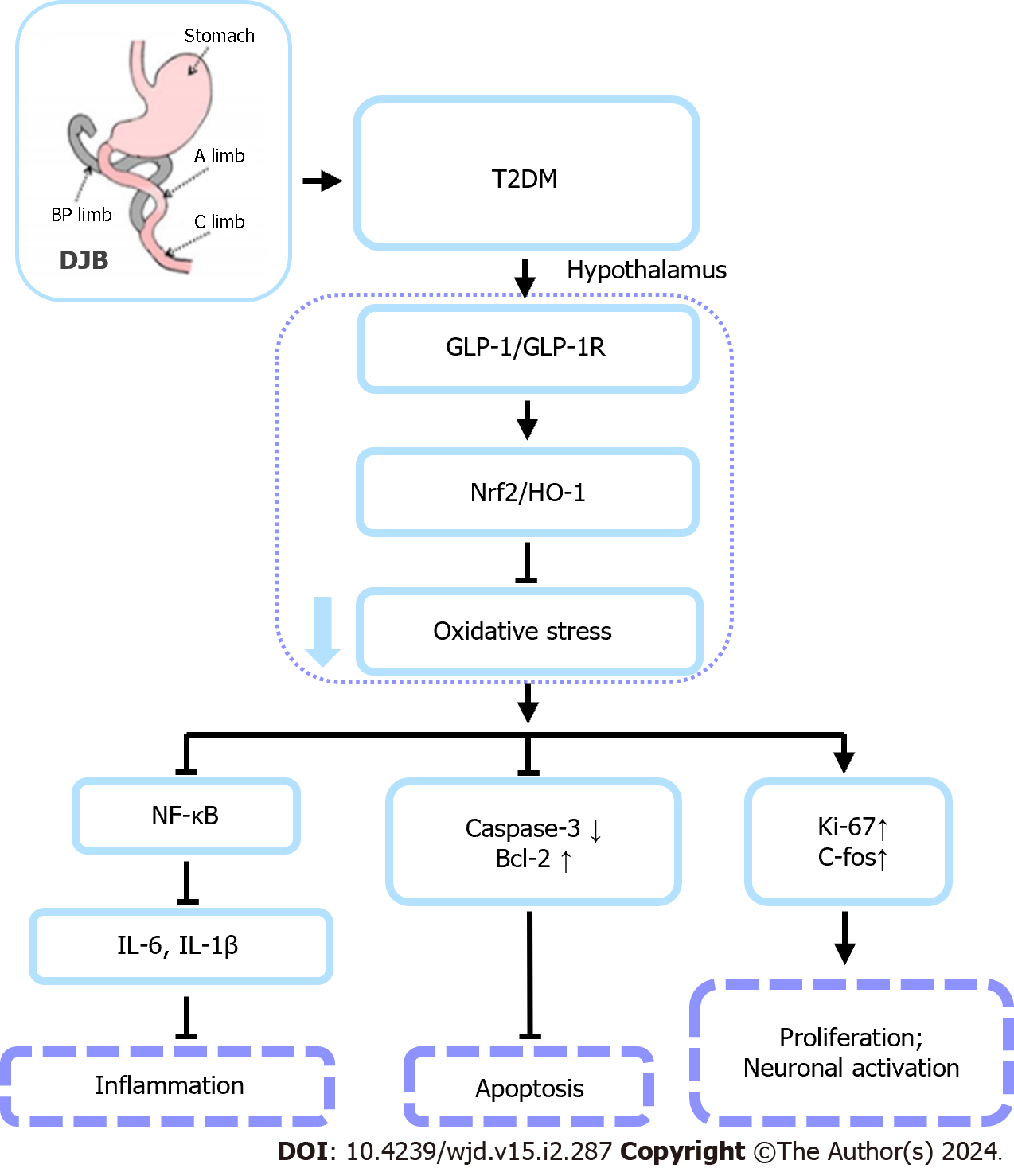Copyright
©The Author(s) 2024.
World J Diabetes. Feb 15, 2024; 15(2): 287-304
Published online Feb 15, 2024. doi: 10.4239/wjd.v15.i2.287
Published online Feb 15, 2024. doi: 10.4239/wjd.v15.i2.287
Figure 8 A schema summarizing the protective effects of duodenal jejunal bypass surgery on hypothalamic cell injury induced by diabetes.
Duodenal jejunal bypass (DJB) surgery significantly reduces hypothalamic oxidative stress injury and inflammation in type 2 diabetes mellitus rats by a mechanism depending on glucagon-like peptide 1 (GLP-1)-mediated activation of Nrf2/HO-1 signaling pathway. DJB therapy effectively inhibits hypothalamic oxidative stress and inflammatory damage caused by diabetes by GlP-1-mediated activation of Nrf2/HO-1 to inhibit oxidative stress damage in the hypothalamus. In addition, DJB inhibits inflammation by upregulating Nrf2 expression, activating the Nrf2/HO-1 axis, and inhibiting the NF-κB pathway. T2DM: Type 2 diabetes mellitus; DJB: Duodenal jejunal bypass; GLP-1: Glucagon-like peptide 1; GLP-1R: Glucagon-like peptide 1 receptor; IL: Interleukin.
- Citation: Wang HJ, Zhang LB, Sun SP, Yan QT, Gao ZQ, Fu FM, Qu MH. Duodenal-jejunal bypass improves hypothalamic oxidative stress and inflammation in diabetic rats via glucagon-like peptide 1-mediated Nrf2/HO-1 signaling. World J Diabetes 2024; 15(2): 287-304
- URL: https://www.wjgnet.com/1948-9358/full/v15/i2/287.htm
- DOI: https://dx.doi.org/10.4239/wjd.v15.i2.287









